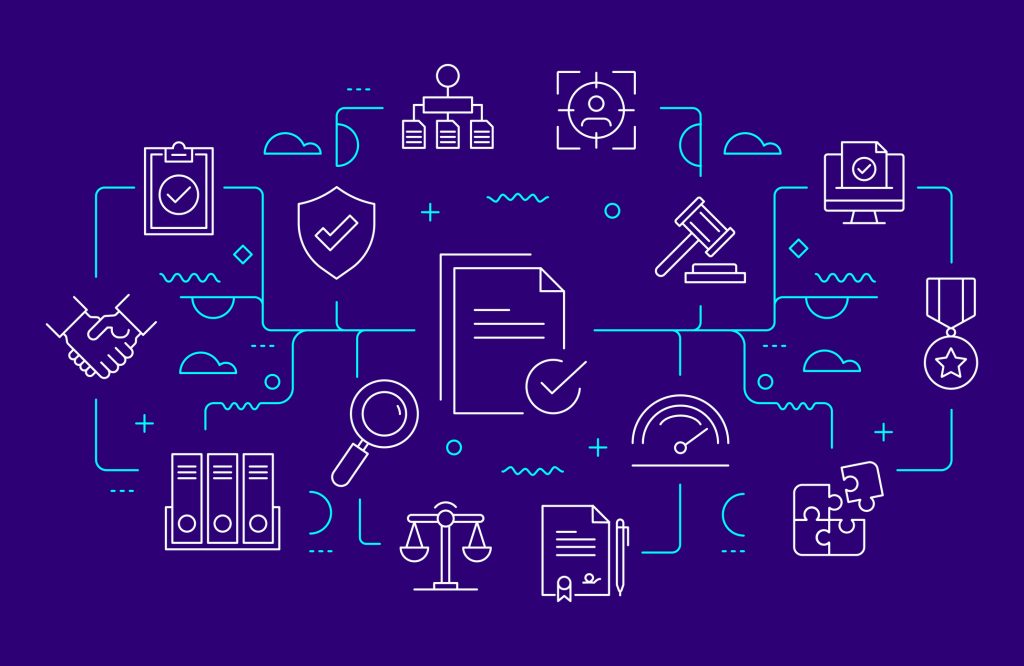Newsletter
Suscríbete a nuestro Newsletter y entérate de las últimas novedades.
https://centrocompetencia.com/wp-content/themes/Ceco



In today’s regulatory landscape, antitrust compliance is a vital aspect of responsible business operations. Companies operating within competitive markets face significant risks if they fail to adhere to competition laws, including fines that can reach up to 10% of global revenue, as well as reputational damage and operational restrictions. As global regulatory scrutiny continues to intensify, businesses are increasingly focused on developing robust compliance programs that prevent violations and encourage a culture of integrity. This short article explores the core components of effective antitrust compliance programs and the essential role they play in mitigating risk and supporting sustainable business practices (Cole & Duxstad, 2021).
«the U.S. Department of Justice’s Antitrust Division has updated its guidance to consider the effectiveness of corporate compliance programs when making charging decisions and sentencing recommendations. This approach acknowledges that a genuinely effective compliance program reflects the company’s commitment to legal adherence and may suggest that any violations were due to isolated actions rather than systemic issues».
Fostering a Culture of Compliance: Antitrust compliance must be embedded in a company’s culture to be truly effective. Senior leadership should visibly champion and prioritize compliance, setting an example by integrating competition law adherence into everyday decision-making. Establishing this culture requires ongoing communication and commitment from leadership, reminding employees of the importance of ethical conduct and legal adherence at every level (Lee & Piontkovska, 2019).
Customizing the Program to Address Specific Risks: For a compliance program to succeed, it must be tailored to the company’s unique industry, market presence, and business practices. A comprehensive risk assessment is necessary, considering factors like the company’s competitive environment, geographical reach, and departments most susceptible to antitrust risks (e.g., pricing, sales). Tailoring the program to specific business activities and industry risks ensures relevance and makes compliance an integral part of the company’s operations.
Securing Management Support and Resources: Top management’s support is critical to a program’s success. The commitment of the board and senior executives—reflected in resource allocation, including a designated compliance officer—is a clear message to all employees that compliance is a company priority. Effective compliance programs require adequate financial and human resources to conduct regular training, monitoring, and auditing efforts (Lee & Piontkovska, 2019).
Employee Training and Education: Regular, role-specific training sessions help employees identify and address potential antitrust issues relevant to their duties. Training should include hypothetical scenarios reflecting real business challenges to aid in recognizing potential risks. Employees should also be informed of internal reporting procedures, empowering them to report potential concerns safely and confidentially (Lee & Piontkovska, 2019).
Moreover, a company’s compliance program plays a crucial role in addressing both leniency and rewards programs in jurisdictions such as the UK, Taiwan, South Korea, and Peru. These programs provide incentives for individuals and businesses to disclose cartel activity, with leniency offering immunity or reduced penalties for the first to self-report, while rewards programs grant financial compensation to whistle-blowers who provide valuable information (for an explanation of the reward program, see A. Calderón, 2024).
Effective compliance programs should educate employees on these mechanisms, ensuring they understand their rights and obligations. Notably, rewards programs may apply even to employees with a peripheral role in a cartel, such as those directed by superiors to attend meetings without active participation. By fostering a culture of compliance and providing clear reporting channels, companies can mitigate risks and encourage ethical behavior while benefiting from leniency protections if cartel activity is uncovered internally (CMA, 2014).
Monitoring, Auditing, and Continuous Improvement: Monitoring and auditing are essential for evaluating the program’s effectiveness and detecting gaps. These processes ensure that compliance efforts are actively reducing risks and allow for prompt adjustments as needed. Continuous improvement is fundamental, with audits providing insights that can be used to strengthen program components and update policies in response to regulatory changes (OECD, 2021).
Establishing Reporting Mechanisms: A reliable and confidential reporting system allows employees to report suspected violations or concerns without fear of retaliation. Effective communication of these reporting channels, along with training on how and when to use them, helps employees feel secure in raising concerns. This proactive approach encourages a corporate environment where potential issues are addressed before they escalate (OECD, 2021, http://oe.cd/ccp).
Incentives and Disciplinary Measures: Incentives for compliance and disciplinary measures for violations are essential to promoting accountability. Employees should be rewarded for demonstrating ethical behavior and adherence to compliance standards, while clear, consistent consequences should be enforced for violations. This dual approach supports a culture of integrity and reinforces the importance of antitrust compliance (OECD, 2021).
Regular Evaluation and Adaptation: Compliance programs must be dynamic, evolving to reflect changes in business practices, market conditions, and legal requirements. Regular evaluations and updates ensure that the program remains relevant and effective in mitigating antitrust risks. As businesses grow or enter new markets, they should reassess and adjust their compliance efforts accordingly (OECD, 2021).
A robust antitrust compliance program not only minimizes the risk of fines and legal actions but also safeguards the company’s reputation and competitive standing. The existence of an antitrust compliance program within a company found guilty of anticompetitive behavior can influence the assessment of penalties. While such a program does not absolve the company of liability, it may serve as a mitigating factor during sentencing.
For instance, the U.S. Department of Justice’s Antitrust Division has updated its guidance to consider the effectiveness of corporate compliance programs when making charging decisions and sentencing recommendations (Stoel Rives, 2024). This approach acknowledges that a genuinely effective compliance program reflects the company’s commitment to legal adherence and may suggest that any violations were due to isolated actions rather than systemic issues (US DOJ, 2024).
Courts and regulatory bodies evaluate the effectiveness of a compliance program by examining its design, implementation, and enforcement. As it was mentioned above, key factors include the program’s comprehensiveness, the company’s culture of compliance, the resources dedicated to compliance efforts, and the mechanisms in place for monitoring, auditing, and risk assessment. The Antitrust Division’s guidance outlines these considerations, emphasizing that an effective program should prevent and detect misconduct, with active enforcement by corporate management (US DOJ, 2024).
A pertinent case highlighting this analysis is the U.S. Department of Justice’s prosecution of Kayaba Industry Co., Ltd. (KYB) in 2015. Despite having a compliance program, KYB was implicated in a price-fixing conspiracy involving shock absorbers. The Antitrust Division noted that KYB’s compliance program was ineffective, as it failed to prevent or detect the anticompetitive conduct. This case underscores the importance of not only having a compliance program but ensuring its effectiveness in practice (Cross J., 2021).
Finally, in today’s complex regulatory environment, developing an effective antitrust compliance program is essential for mitigating legal risks and sustaining ethical business practices. By embedding compliance in the company’s culture, tailoring the program to specific risks, securing management commitment, and focusing on continuous improvement, companies can strengthen their defenses against antitrust violations. Compliance programs not only protect against legal repercussions but also foster trust with customers, investors, and other stakeholders, establishing the organization as a committed, ethical player in the marketplace. Ultimately, an effective compliance program is more than a protective measure—it is an investment in the company’s long-term success and reputation.